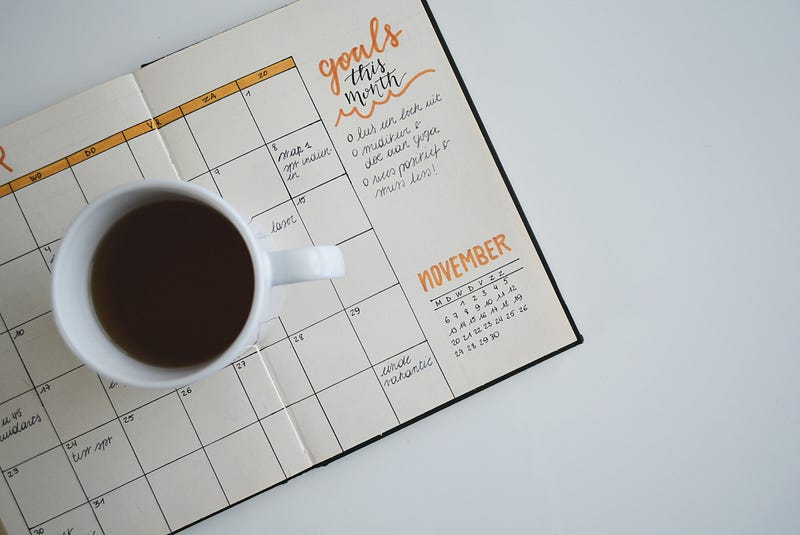Your journal is a friend of your mind, a home for your thoughts, and a cozy space for your feelings. I’m an avid advocate for daily writing as a self-care method. But did you know there are scientifically proven benefits to journaling?
It’s true: people who keep a diary enjoy better health than the rest of us, and it’s not just in terms of mental well-being. Regardless of your favorite journaling method, writing down your thoughts and feelings brings only positive outcomes to your long-term happiness.
I’ve compiled this short list of the top 5 journaling benefits I’ve experienced in my own practice, but trust me, there’s so much more to discover if you pick up this habit on your own.
Here’s why:
1. Journaling Can Be a Tool to Treat Depression and Anxiety

Writing about your feelings, otherwise known as expressive writing, can help manage your symptoms of depression and anxiety. A review of 31 studies found that journaling works best when done in short writing sessions (1–3 days apart). This suggests that writing regularly has a significant positive impact on overall mental well-being.
And guess what’s the best part? This hobby is entirely free and accessible to anyone! You don’t need any fancy stationary to start keeping a journal. But if you take only a handful of minutes a day to address your thoughts, you’ll be able to handle your complex struggles much better.
No, journaling is in no way a substitute for professional help. However, using your words to heal emotional wounds is a simple method at your disposal at any time. Just grab a pen and any notebook you like and start writing!
2. Journaling Helps With Memory Retention

This is my main personal reason for maintaining a journaling habit. I mean, it’s kind of obvious, right? If you write down something, chances are, you’re less likely to forget about it.
But it’s a scientific fact that journaling improves your memory and helps with cognitive processing. People who regularly write about their experiences have significantly better autobiographical memories. When you put your experiences into words, you’re engaging more cognitive processes, reinforcing those neural pathways in your brain.
And it’s not just about our ability to remember. The brain-boosting exercise of daily writing can make a lasting impact on our problem-solving and decision-making abilities.
Other than that, simply writing down any lightbulb moment you have during the day can reduce your cognitive overload. If you’re anything like me, you’re constantly jotting things down in your mind as you go along during your day. This can get very tiresome after a while, and if you’re very busy, you’ll naturally forget things every now and again.
Use your journal as if it’s Neville Longbottom’s Remembrall — it’s actually much more useful than that because anything you write down will always be there exactly as you left it. 😀
3. Journaling Reduces Stress

This is a perk I’ve experienced myself. Whenever I am in a situation where I cannot express my frustrations freely, writing down my thoughts helps to calm me down.
In fact, writing down our troubling thoughts has been known to improve both our psychological and physiological health. More than one study has proven that journaling is an excellent therapeutic tool that can reduce stress, improve critical thinking, and even help with your physical health. Of course, it cannot be a complete replacement for mental health treatments, but it’s a great addition to them.
This doesn’t mean you should make the journaling mistake of writing down only your negative thoughts. However, just 15 to 20 minutes of daily reflections are enough to positively impact our stress levels.
4. Journaling Helps With Self-Awareness

Guess what? Ever since I started journaling, I’ve stopped being delulu! Just kidding, I’m still insane. 😅
Self-deprecating jokes aside, the act of journaling can be a wonderful source of self-reflection. Oftentimes, we can’t completely comprehend our experience in the present moment. Frequently, we live while either planning for the future or ruminating over the past.
But how to write in a journal to form a deeper understanding of ourselves? If you want to build better self-awareness, then I’ve got a small journaling exercise you can start right now:
Write about something impactful that happened to you this week. It could be a conversation or an event, either positive or negative, but it must be something you feel strongly about. Express your excitement or frustrations, then set a reminder for six weeks from now.
Then forget about it; just put it aside.
In a month and a half, when you re-read that diary log, I want you to journal again about the same experience. This time, however, reflect on how you’re feeling about it right now, after some time has passed. To make it easier, you can use these journaling prompts to reflect on:
- How have my emotions changed since I wrote this?
- Was my initial reaction appropriate in relation to the importance of what happened?
- Were there specific triggers or underlying emotions at play? Did you notice them at the time, or are you seeing them just now?
- What did this teach you about yourself or others?
- Did it influence your thoughts, actions, or relationships, or otherwise impact your daily life experiences?
This is just one simple practice, but you can learn so much about yourself, your subconscious traits, and your personal values.
5. Stay Organized and Achieve Your Goals With a Journal

Yet another reason why I preach this habit so much. Tell me, how often do you write a to-do list only to forget about following through on it? Later on, you look at the tasks you wrote down, and half of them are still unfinished… Yikes!
That’s why I use my writing skills not just to express my inner workings but also to realistically keep track of my goals and set targets. I don’t know about you, but when I’m really excited about a new venture, I get very ambitious. So much so, I set targets that are out of my scope and get burned out quickly trying to make everything happen at once.
On the other hand, when I argue with myself in my journal (😅), I brainstorm realistic strategies to complete my goals. It has helped me manage my budget, my creativity plans, I’ve managed to pile up my savings, maintain a consistent workout routine, and so much more!
Let me show you how I practically do this:
1. Categorize your goals and break them down into tasks
First, decide on your short-term and long-term goals. In my book, anything that takes less than six months from start to finish is a short-term goal, but you can use whatever kind of system works best for you. Write them down clearly, and give yourself a visual roadmap with checkpoints.
For instance, when I set the goal to save 10k in a year, I set mini targets for every fourth month of the year. This way, I could do a check-up every once in a while and see if I’m on target. Not only was I able to hold myself accountable and stay mindful of my spending habits, but this helped me save more money than my original goal!
2. Set your priorities
No two goals are the same. To give you an example, I set targets to minimize my spending on clothes and books in 2023. But completing these goals was less important than my overall savings target. So even if I did buy a couple of books in a month, if I was within budget, it was fine.
Not everything on your to-do list is equally urgent or important. Journaling can help you identify and focus on the tasks that will have the most significant impact.
3. Track your progress and habits
I suggest you incorporate some system for habit tracking into your journal. This is easier to do if you’re journaling digitally than in writing. In my case, I use Notion for budgeting and mood tracking. But you can absolutely find your own way to do this in a physical journal. For example, I used the “year in pixels” layout in one of my old notebooks, and it worked well for me.
Whatever you decide on, just make sure you regularly revisit your goals to reflect on your progress. It’s worth celebrating your small victories and adjusting your strategies accordingly. If, halfway through a goal, you find that your current plan is not working, don’t be afraid to iterate or start from scratch.
Don’t be discouraged by setbacks; we all experience them. There’s a lot to learn from things that don’t work out for us. Take it as a lesson and create a better plan for yourself with this new knowledge in your arsenal.
Conclusion
All in all, there aren’t many (if any?) downsides to keeping a journal. In fact, the benefits of journaling for mental health, spiritual wellness, and even your physical body make it a worthwhile thing to try! It’s where your thoughts feel at home; it’s the written record of your hard work, struggles, and memorable moments.
A daily writing habit can be your own little ritual of self-care, a safe space to freely express your deepest emotions.
So give it a go; you never know what you’ll discover about yourself when you pick up your first self-authoring notebook. You’ll be able to recall your fondest memories clearly or handle your complex traumas with a bit more grace for yourself.
The next time you jot down a to-do list, consider using your journal to turn those tasks into accomplishments. This humble daily practice can make a meaningful difference in a happier, more fulfilling life.
Featured image: Photo by Finde Zukunft on Unsplash
Thanks for reading!
Check out more of my writing on Medium! 💌
If you want to chat you can find me on Instagram ⋆.ೃ࿔*:・

